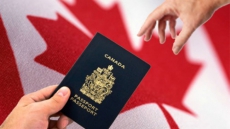TORONTO — Nurse practitioners — not just doctors — would be allowed to provide medically assisted death to eligible patients under proposed legislation tabled Thursday by the federal government.
Their inclusion in Bill C-14 is being welcomed by both nursing and physician groups, which say that nurse practitioners are often the only medical professionals working in rural and remote communities who could provide patients with aid in dying.
"This legislation shows a clear understanding and recognition of the nursing profession's role in medical assistance in dying, both when nurses provide primary care, as in the case of nurse practitioners, and when they are part of an interdisciplinary health-care team," the Canadian Nurses Association said in a statement.
Under the draft legislation, physicians and nurse practitioners would be protected from Criminal Code prosecution for helping patients to end their lives, either through the prescribing of lethal medications for self-administration or for euthanasia, in which the practitioner injects the fatal drugs.
Other health-care practitioners peripherally involved in assisted death, such as pharmacists, physician assistants, registered nurses and social workers, would also be protected from prosecution. The same is true for a family member who, for example, lifts a glass to a patient's mouth to help them swallow the drugs.
Doris Grinspun, CEO of the Registered Nurses' Association of Ontario, said the organization had pushed for the inclusion of nurse practitioners — registered nurses who have an additional two years of training that broadens their scope of practice.
"Nurse practitioners are primary-care providers for thousands of people in Ontario and, quite frankly, across the country," said Grinspun, noting that the highly trained nurses care for patients in hospitals, primary-care settings, within the home and in long-term care facilities.
In Ontario, nurse practitioners also have the legislative authority to admit, treat, transfer and discharge patients from hospital, she said.

For the government to have restricted aid in dying to doctors would have made "absolutely no sense," she said. "You want the person who is the most close to you, the person who has been taking care of you all the time."
Nurse practitioners are also licensed to prescribe medications. However, in Ontario, the professional group can't prescribe certain "protected substances," which would include the powerful drugs needed to end a person's life, said Grinspun.
She said the province and regulatory college for nurses need to move forward with regulations that would allow nurse practitioners to fulfil the mandate they've been given under the proposed federal legislation.
The Canadian Medical Association also welcomed the direction of the draft legislation, saying the Liberal government had taken a cautionary approach, which the doctors group had encouraged as well.
"We feel it's a very balanced and considered approach, particularly initially as we introduce the first legislation of its kind in Canada, and it really tried to strike a balance between very different points of view on a very complex and controversial issue," said Dr. Jeff Blackmer, the CMA's vice-president of medical professionalism.
Blackmer said he was not surprised to see nurse practitioners joining physicians as the mandated providers of assisted suicide and euthanasia for patients whose "grievous and irremediable suffering" makes them eligible for the procedure.
"There were always a lot of concerns about ensuring access" in rural and remote communities across the country, he said. "When we're talking about assisted dying, the whole point of this intervention is to die at home or in your community surrounded by loved ones at a time and place of your choosing.
"So doing whatever we can to facilitate that rural and remote access to a service that will be available for other Canadians is very important."
One of the most contentious issues since the Supreme Court of Canada struck down the law banning assisted dying in February 2015 was the question of whether doctors who object to assisted suicide and euthanasia on moral or religious grounds would be compelled to refer patients requesting help to die to a willing colleague.
Blackmer said Bill C-14 doesn't specifically deal with the issue of referral, and briefings by government officials suggested it would be left up to the provinces and territories and the professions' regulatory bodies to spell out any specifics in regulations.
The CMA has been calling for a central co-ordinating and referral system, which would include a list of practitioners willing to provide assisted death — giving patients easy and timely access to the service while protecting physicians' identities and not compromising the wishes of conscientious objectors.

Creating such a central hub would make moot the concern by doctors who see referral as tantamount to providing the service themselves, he said.
Grinspun said the RNAO supports the idea that nurses and nurse practitioners should not be compelled to take part in ending a patient's life, as a matter of conscience.
"However, those who opt out or cannot provide the service, they have a responsibility to refer to others," she said.
"That, in our view, would be absolutely against the intent of the legislation, which is to enable people to choose ... You absolutely need to refer. Otherwise, we are leaving people without a service."


